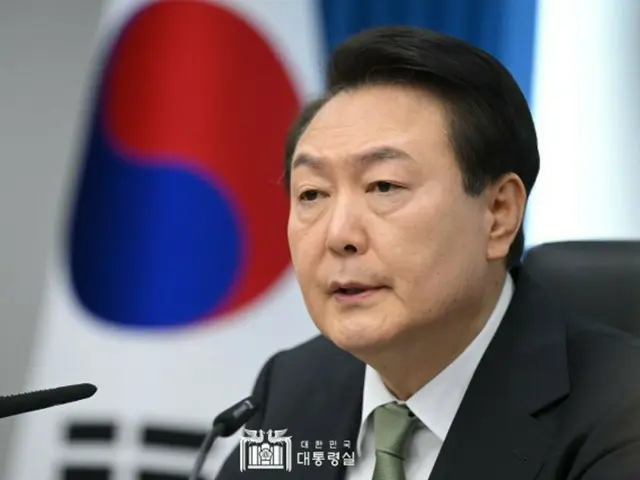Yoon, who attended a meeting of the "Korean Social Affairs Committee," said, "We will take a national, all-out approach until we overcome the issue of low birth rates."
The birth rate (the number of children a woman gives birth to in her lifetime) was 0.72, a new record low. South Korea's birth rate was 1.74 in 1984, the first time it had fallen below 2. In the 2000s, it was 1.
The birth rate has fluctuated between 1 and 1.3, and finally fell below 1 in 2018 to 0.98. Among the member states of the Organization for Economic Cooperation and Development (OECD), only South Korea has a birth rate below 1.
The rate has not been curbed, falling to 0.84 in 2020, 0.81 in 2021, 0.78 in 2022, and hitting an even lower low of 0.72 last year.
The low birth rate has been a major social issue in South Korea since the early 2000s.
The Yoon administration has also taken steps to combat the declining birthrate, such as building low-rent public housing and accepting immigrants, but the decline in the birthrate has not progressed at all.
The decline in the birthrate is not stopping. The main reason for the declining birthrate is said to be the decrease in the number of people getting married. In South Korea, a highly educated society with a difficult job market, the gap is widening as a result of fierce competition.
In Korea, the term "3-po" was coined in the mid-2000s to mean giving up on love, marriage, and childbirth.
The idea that marriage is something that only mothers should do remains, and some women hesitate to get married out of concern that they will have to shoulder the burden of child rearing and housework all at once.
It is also true that we are living in an age where lifestyles are becoming more diverse, with some women choosing not to marry, and this is also a value that should be respected.
On the other hand, the aging rate, which indicates the proportion of people aged 65 or over, is steadily increasing.
The country's aging rate is 17.5%, lower than that of Japan (29.1%), which is already a super-aged society. However, it is expected to reach 20.6% by 2025, and will enter a "super-aged society" of over 21% by 2030, and then by 2045.
The 2024 Population Report published last month by the Korean Peninsula Future Population Research Institute, a South Korean think tank, is expected to overtake Japan as the world's most elderly nation.
The productive population is expected to decline from 36.57 million in 2023 to 27.17 million in 2044. The institute said, "A decline in the productive population will reduce consumer vitality and lead to the collapse of the domestic demand market.
"If the elderly care burden increases, the economic growth rate will rapidly slow down, and long-term low growth will become entrenched," President Yoon said in a speech to the nation and press conference on the 9th of last month.
He called the declining birthrate a "national emergency" and said, "We will mobilize all of the nation's capabilities to overcome it." Yoon formally declared a "national population emergency" on the 19th of this month.
The minister in charge of the newly established "Population Strategy and Planning Department" to deal with the aging population will also serve as Deputy Prime Minister for Social Affairs, and will formulate a medium- to long-term national development strategy regarding population, including policies on the declining birthrate, the aging society, and immigration.
The immigration policy, which is based on the idea that measures to combat the declining birthrate alone are not enough to deal with the declining population, will see the establishment of a system to accept more foreigners.
It is expected that the new ministry will comprehensively oversee policies for foreign residents and immigration control, which are currently implemented separately by each ministry.
The Population Strategy Planning Department has the authority to deliberate budgets related to the declining birthrate in advance and to pre-determine local government projects.
Yoon said that he will be given the right to consult with the government and "will play the role of a powerful command center." Yoon also cited issues of balancing work and family life, child rearing, and housing as challenges in solving the problem of declining birthrates.
He introduced policies such as increasing the rate at which men take parental leave from the current 6.8% to 50% during his term, and providing low-interest housing loans to newlyweds.
Yoon said, "We will continue to create systems and policies that the public can feel the effects of through close cooperation between the public and private sectors, and between the government and ruling party," and added, "We will launch a Population Strategy and Planning Department as soon as possible.
"I would like the National Diet to cooperate so that we can build a comprehensive national response system."
2024/06/20 13:57 KST
Copyrights(C)wowkorea.jp 5

